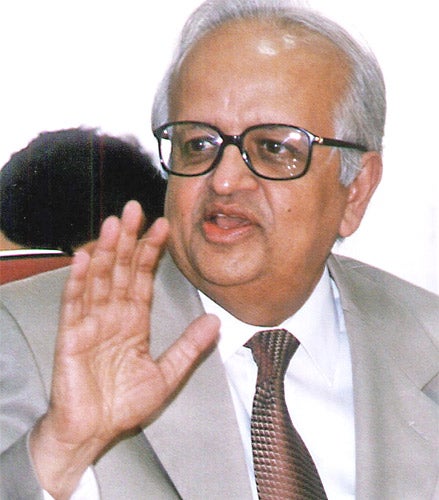India's corruption is destroying nation, warns business elite

In an embarrassing blow to the Indian government, a group of senior businessmen and members of civil society have published an open letter claiming that rampant corruption is destroying the "fabric of the nation".
Following a series of high-profile controversies over corruption that has pushed the issue ever more under the spotlight, the group has warned there is a "governance deficit" in almost every area of national activity. It calls on the authorities to restore confidence in the country and in the government itself.
"What we are deeply worried about is not to allow India's huge growth potential and poverty alleviation challenges to be diluted or digressed from and which would be a great loss, especially to the poor and the dispossessed," says the letter.
The issue of corruption and bad governance is nothing new in India, where bribes and kick-backs are part of everyday life for hundreds of millions of people. But this allegation that unchecked corruption is undermining the country is particularly damaging given the calibre of the members of so-called India Inc, who have attached their names to it. Among the signatories are Azim Premji, the chairman of technology giant Wipro, Deepak Parekh, the head of HDFC bank, Godrej and Boyce chairman Jamshyd Godrej and the former head of India's reserve bank, Bimal Jalan.
The letter, handed to an Indian newspaper, comes amid a series of high-profile issues of corruption that have rocked India and triggered concerns within the highest levels of the government, headed by the Congress Party. Inquiries are currently underway into allegations of fraud and kick-backs surrounding Delhi's hosting of last October's Commonwealth Games and the flawed 2008 auction of 2G spectrum licences, an undertaking reckoned by some estimates to have cost the country up to £22bn. The then-minister who organised the auction, A Raja, was forced to resign his position. Late last year, the auction scandal found its way as high as the Prime Minister, when the country's most senior court asked Manmohan Singh to explain why the government had taken more than a year to respond to questions from opposition politicians about Mr Raja's conduct.
Subsequently, Sonia Gandhi, head of the Congress Party, announced a five-point plan to tackle corruption, a move that was mocked by the opposition Bharatiya Janata Party.
Mrs Gandhi and Mr Singh met last night to discuss an anticipated reshuffle of the cabinet, designed to regain lost momentum, that is expected to be announced later today.
The letter from the business leaders reflects mounting concern among India's ever-expanding upper-middle classes that corruption is standing in the way of the country's progress. Studies have repeatedly shown that corruption also undermines government projects to help the poor. At the same time, regional chief ministers such as Narendra Modi in Gujarat and Nitish Kumar in Bihar – who have promoted themselves as efficient and corruption-free administrators – have been rewarded with re-election despite, in the case of Mr Modi, the lingering controversy over his government's role in the 2002 killing of hundreds of Muslims.
"It is imperative to establish ways and means, for every Indian, to feel that they have genuine equal opportunities, access to decision makers and a stake in India's progress," adds the letter, published by the Hindustan Times.
"Dealing determinedly with governance and aggressively against corruption while openly debating these issues by elected legislators is the only means left to reassure our citizens."
Crisis points
Commonwealth Games
India's Central Vigilance Commission is investigating 22 corruption allegations after the event last October. One of the most high-profile cases involves treasurer Anil Khanna, who resigned after it emerged he contracted his son's company to lay 14 synthetic tennis courts that could have increased injury risk to players. He denies any wrongdoing.
Mumbai
A member of the ruling party and Maharashtra's chief minister, Ashok Chavan resigned when it emerged his relatives owned flats in a Mumbai housing development built for war widows. It is thought apartments were also sold to politicians at low prices. The government has ordered the block be demolished. Mr Chavan denies wrongdoing.
Join our commenting forum
Join thought-provoking conversations, follow other Independent readers and see their replies
Comments
Bookmark popover
Removed from bookmarks